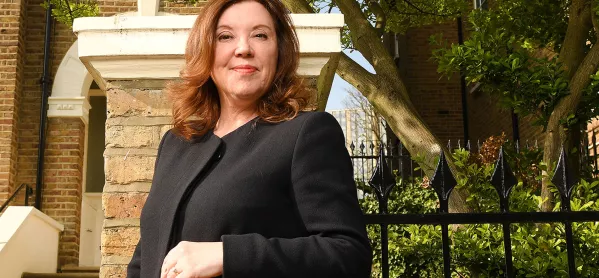‘Obsess’ about attendance, schools told

Schools should “create a culture” that “obsesses” over attendance, the children’s commissioner has said.
Dame Rachel de Souza made the comment in her report, The Voices of England’s Missing Children, which was published today and includes six “ambitions” to improve school attendance and a deep-dive looking at the practices of 10 local authorities.
- Attendance: DfE hiring more attendance advisers to ‘challenge’ schools
- GCSEs 2022: Year 11 absence double pre-pandemic rate
- Absence: DfE must act ‘urgently’ on ‘ghost’ pupils after Covid
Here’s an overview of the key recommendations.
1. Ofsted should make school attendance a ‘top priority’
As part of Dame Rachel’s ambition to make school attendance “everyone’s business”, she has recommended that Ofsted should make it a “top priority” in its inspection framework.
This is part of her vision for all services to be responsible for safeguarding children, as well as “taking ownership and contributing to solutions”.
2. Attendance to be prioritised in Parent Pledge
All children should feel “listened to” by teaching staff, Dame Rachel says, so attendance should be prioritised in the Parent Pledge.
The Pledge, announced in the government’s Schools White Paper, says teachers will identify children who need help and provide targeted support, keeping parents informed about their child’s progression.
3. Schools should provide counselling
Dame Rachel recommends that schools provide, and are supported to provide, a range of early support services, such as in-house counselling.
As part of the deep dive, the children’s commissioner saw examples of schools that had developed their own on-site alternative provision (AP) as part of a support programme for pupils.
4. AP should be an ‘integral part’ of the system
The children’s commissioner recommends that AP should “consistently be an integral part of the wider education system” so that children can “transition smoothly into and out of this provision”.
All AP should be “high quality with a focus on outcomes”, she adds.
The report says that where pupils who received a permanent exclusion did not get any intervention or support, it could lead to a “cycle of continued exclusions and children falling out of school”.
5. More guidance needed on supporting children post-exclusion
As part of an ambition to break that pattern, the children’s commissioner recommends that the Department for Education “should consider issuing further guidance on support for children post-exclusion” in order to set out the responsibilities of schools to assess the pupil’s “needs” and “provide support”.
6. All schools should have a ‘young carers’ policy’
The report also recommends that all schools should co-write a policy in collaboration with the young carers to “set expectations” and ensure that there is a “codified offer for support for young carers within the school”.
7. ‘Clear expectations’ needed around data sharing
The report recommends that there should be “clear expectations regarding data sharing” between organisations responsible for safeguarding children.
The children’s commissioner’s March report - Where are England’s Children? - looked at how there was no real-time live database showing where pupils were absent from school across the country.
Register with Tes and you can read two free articles every month plus you'll have access to our range of award-winning newsletters.
Keep reading with our special offer!
You’ve reached your limit of free articles this month.
- Unlimited access to all Tes magazine content
- Save your favourite articles and gift them to your colleagues
- Exclusive subscriber-only stories
- Over 200,000 archived articles
- Unlimited access to all Tes magazine content
- Save your favourite articles and gift them to your colleagues
- Exclusive subscriber-only stories
- Over 200,000 archived articles
topics in this article



